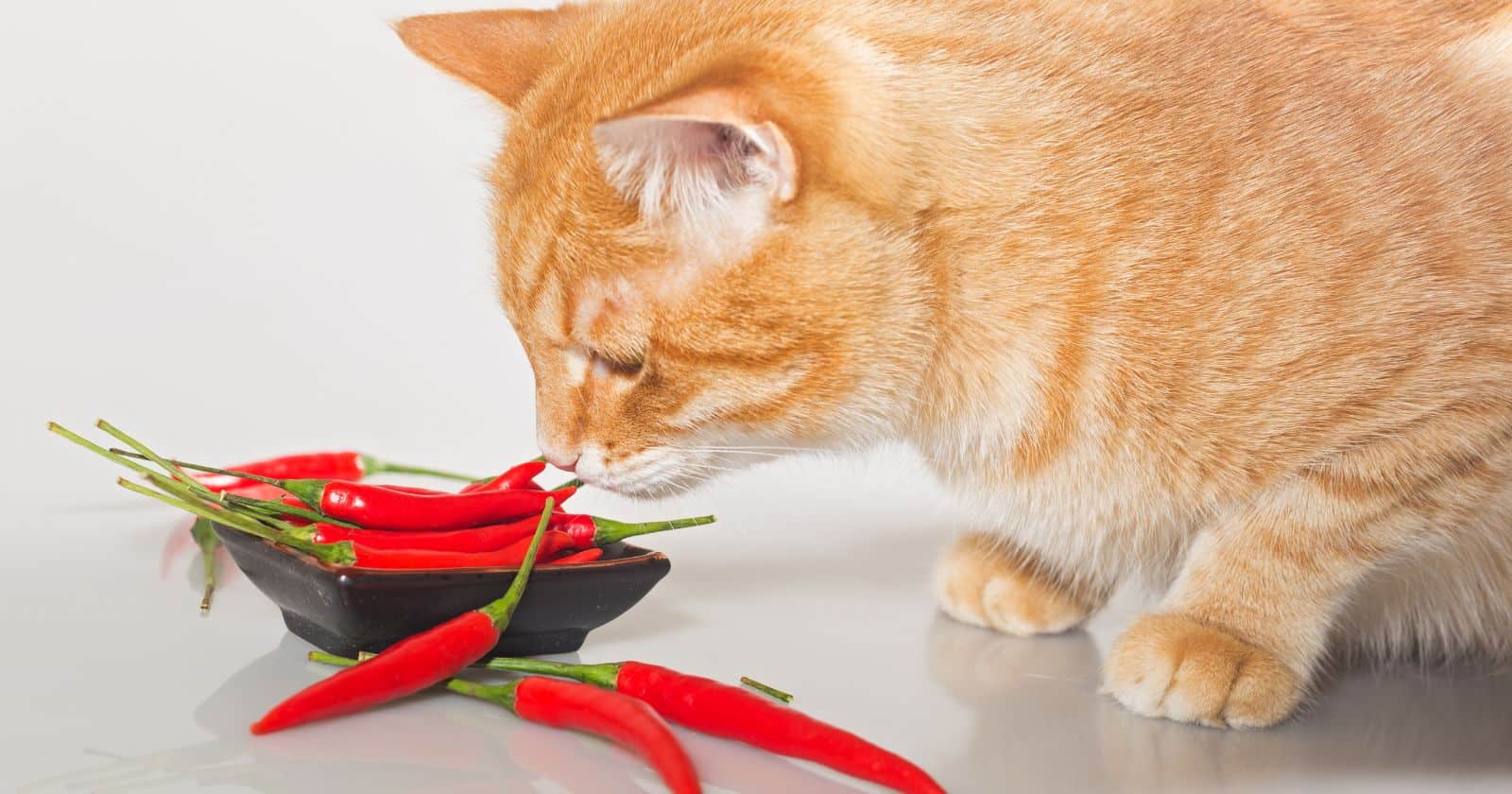Do you love to
While not toxic to cats, cayenne pepper can cause stomach upset, irritation, and general discomfort if ingested by cats. It’s best to store it safely out of paws’ reach. Read on to learn about cayenne pepper’s effects on cats, including:
- The potential risks cayenne poses for cats
- How cayenne can impact sensitive cat digestion
- Tips for keeping cats away from cayenne pepper
- Safer cat repellent alternatives
- Signs of cayenne irritation in cats and what to do
Cayenne pepper itself is not poisonous to cats. However, it contains an irritating compound called capsaicin. If ingested, it can cause mouth burns, vomiting, diarrhea, and other stomach issues in cats. So while not life-threatening, it’s ideal to keep fiery cayenne away from felines.
Here’s a quick overview of the risks cayenne pepper poses for cats:
- Can irritate mouth, eyes, skin if touched or ingested
- May cause digestive upset like vomiting or diarrhea
- Strong spicy scent naturally deters most cats from overindulging
- Not recommended as a cat repellent due to discomfort
Storing cayenne pepper safely out of reach and using humane cat deterrents instead is the best way to avoid any peppery pitfalls. Read on to learn how to protect your cats from the perils of cayenne!
Is Cayenne Pepper Harmful for Cats?
Cayenne pepper itself is not toxic to cats. However, it contains a compound called capsaicin that can irritate cats if ingested or if it contacts their eyes or paws. Here’s an overview of the potential risks:
- Can cause mouth, tongue, and eye irritation or burns
- May lead to vomiting, diarrhea, and stomach upset if large amounts are eaten
- Unpleasant, spicy taste deters most cats from overindulging
- Not recommended as a cat repellent due to discomfort it causes
So while not generally dangerous, it’s best to keep cayenne away from cats to prevent any pepper-related health issues. Let’s look closer at the effects it can have if cats happen to sample some.
Cayenne Pepper’s Impact on Cat Digestion
Cats have very different digestive systems compared to their human companions. Cayenne pepper can upset their sensitive stomachs and intestines if they accidentally get into it. Here’s what you should know:
- Capsaicin causes irritation, inflammation, and discomfort
- Can lead to vomiting, diarrhea, gas, and abdominal pain
- May result in mouth, tongue, and throat burns
- Impacts cats more severely than
spice -loving humans - Rarely life threatening, but can cause distress
- Symptoms usually resolve in 24 hours if not excessive amounts
Monitor your cat closely if they’ve ingested cayenne pepper and call your vet if symptoms persist or seem severe. They’ll likely recommend rest, plenty of water, and bland foods until kitty’s tummy recovers.
Keeping Cayenne Away From Cats
An ounce of prevention is worth a pound of cure when it comes to keeping cats safe from cayenne pepper’s risks. Here are some tips to cayenne-proof your home:
- Store spices in high, latched cabinets cats can’t access.
- Keep food dishes away from counter edges or tables.
- Clean up any spilled spices right away.
- Avoid using cayenne pepper as a cat repellent.
- Monitor cats closely when using cayenne in recipes.
- Never purposefully feed cats spicy human foods.
With some awareness and preventative steps, we can keep cats out of harm’s way when it comes to our zesty cayenne pepper.
Safer Cat Repellent Alternatives
It’s best not to use cayenne pepper to deter cats, since it can cause burning, irritation, and discomfort if they ingest or touch it. Here are some safer, cat-friendly repellent options:
- Citrus peels – Cats dislike the citrusy scent.
- Lavender, rosemary or rue – Smell overwhelms cat’s sensitive noses.
- Chili pepper granules – Added to mulch, deters scratching.
- Motion activated sprinklers – Startles cats without harm.
- Scat mats – Give a mild static shock when stepped on.
- Ultrasonic devices – Emits unpleasant high-pitched sound.
Using humane repellents will discourage cats without the risks hot peppers like cayenne pose. Always supervise cats around any repellents to be sure they work as intended.
Signs of Cayenne Pepper Irritation in Cats
Cayenne pepper can take a toll on feline eyes, skin, and digestion. Watch for these symptoms if you suspect your cat has come in contact with or ingested cayenne pepper:
- Excessive blinking, squinting, or pawing at eyes
- Visible irritation, redness, or swelling around eyes or mouth
- Repeated swallowing or head shaking
- Drooling or lip licking
- Loss of appetite or refusal to eat
- Vomiting or diarrhea
- Hiding or signs of discomfort
Seek prompt veterinary care if your cat displays any severe or persistent symptoms after possible cayenne pepper exposure. Early treatment will help alleviate discomfort.
First Aid Tips for Accidental Ingestion
Hopefully with preventive measures, your cat will never get into cayenne pepper. But if an accident happens, here are some first aid tips:
- Remove access to any remaining cayenne.
- Gently wipe paws and fur to rid of any residue.
- Offer milk to help soothe digestive upset.
- Encourage drinking water to flush out irritation.
- Monitor closely for any symptoms of distress.
- Call your vet if symptoms seem serious or don’t subside within 24 hours.
- Avoid inducing vomiting unless instructed by your vet.
With quick action, you can help relieve your cat’s misery in the event of an unfortunate cayenne encounter. Prevention is key, but prompt first aid can minimize the damage.
The Takeaway on Cats and Cayenne
Here’s the bottom line when it comes to mixing felines and fiery cayenne pepper:
While not toxic, cayenne pepper can cause irritation, upset stomachs, and general discomfort in cats if ingested. It’s best kept safely out of paws’ reach. With careful storage and monitoring when in use, we can savor the zing of cayenne while keeping kitties protected.
Opt for cat-friendly repellents instead of cayenne pepper if attempting to deter cats, and call your vet promptly if kitty accidentally gets into this spicy





